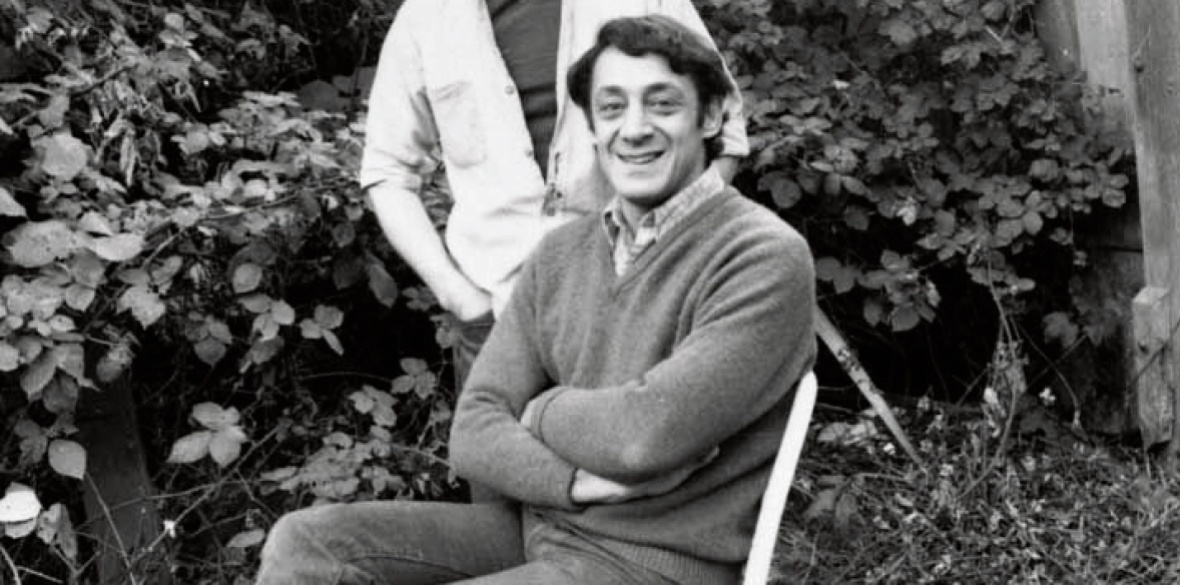This is the last article you can read this month
You can read more article this month
You can read more articles this month
Sorry your limit is up for this month
Reset on:
Please help support the Morning Star by subscribing here
NOVEMBER 2018 saw the 40th anniversary of the assassination of San Francisco city supervisor Harvey Milk, the first openly gay man to be elected to public office in the US.
He fought for gay rights at a time when they were under direct threat. Many local gay rights laws across the country were being repealed in the mid-1970s by public votes and in 1978 Proposition 6, backed by resurgent right-wing Christian evangelicals, aimed to ban gay men and women from teaching in California’s public schools.
It was so extreme even Ronald Reagan came out against it! Partly due to Milk’s spirited fightback and inspirational leadership however, it was defeated at the ballot box just three weeks before his death.
Gay life at this time centred on the Castro, what had previously been a working-class Irish and Italian neighbourhood, before the industries that supported these workers disappeared triggering an exodus.
The handful of mostly older residents that remained were initially horrified at the thought of the district being adopted by the city’s gays and lesbians, but Milk wanted to see a revival not just of the area’s economic heyday but also its small-town feel and community spirit.
This would provide the increasingly militant LGBT youth (which was pouring into the city in the early 1970s) with a safe space to organise, and he argued also make the area a better place to live in for all its residents. The project was so successful that the original residents soon celebrated the area’s rebirth and the role the LGBT community was playing in it.
Milk wasn’t a one-trick pony though; he fought for the civil and economic rights of many of the other marginalised groups that made up San Francisco’s famously diverse population, including the Asian community, African-Americans, Latinos and senior citizens.
He set up local associations to protect their small businesses against the scourge of downtown corporate interests. He continued to promote such policies once in office, as well as reaching out to such groups through their newly elected representatives on the board of supervisors and encouraging them to truly engage with the political process for the first time.
Such diversity on the Board was made possible by San Francisco’s move away in the mid-1970s from city-wide ballots to “ward politics” where each ward in the city would choose their own representative.
This made it easier for minorities to elect one of their own, which in turn led to more of a connection between citizens and their elected officials as voters were much more likely to be represented by somebody they knew personally, an individual who truly shared their experiences and understood their concerns. Milk believed this had revolutionary potential. All of this makes up a manifesto Jeremy Corbyn would be proud of I feel.
However, Milk was a Republican which might come as a surprise to some. Until coming out at the age of 40, he had lived in his native New York and worked in many jobs including as an insurance actuary. In those days he liked earning a lot of money, spending lavishly on his immaculately decorated apartment and taking his secret lovers to the opera as often and as discreetly as possible.
A job working backstage on Broadway eventually exposed Milk to more “alternative” lifestyles however, and after burning his Bank of America card during a Vietnam War protest, he came out and left nearly all traces of his previous life behind to move to California and open a humble camera store with his new partner Scott Smith in the late 1960s.
They spent their Sundays smoking cannabis and doing puzzles, before Milk’s growing activism began to dominate his time more. However, his natural affinity with certain Republican ideals such as fiscal conservatism and small government travelled with him across the country and never left him.
He described himself as being “too conservative” for the left and “too liberal” for the right as he believed in limited government spending, low taxes and deficit reduction as a priority, but also in social and economic equality and justice, and the liberalisation of strict anti-drug laws. This is a perfect example of the many contradictions and complexities which make Milk such a fascinating figure to study, but it also for me, somewhat paradoxically, makes him most definitely a leftist hero.
Yes, his fiscal conservatism was always there, but his contemporaries tell us that the happiest years of his life were those spent towards the end, penniless but fighting tirelessly for the betterment of his fellow man and woman. He relished taking on the responsibility of public office and giving hope to his many thousands of followers.
I disagree with him on limiting the role of public spending to improve lives, but he once famously said it “costs nothing” to roll back prohibitive and discriminatory laws and give people more freedom and control over their lives. This made perfect sense to Milk in a world tarnished by life-destroying homophobic legislation.
“You’ve got to give ‘em hope” was his famous rallying cry. For Harvey Milk “em” meant not only those on the left but anyone hoping for a more emancipated and fulfilling existence. We should remember and celebrate him for that.









